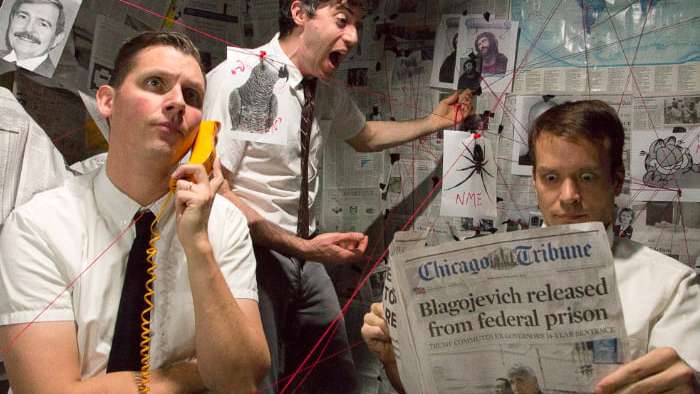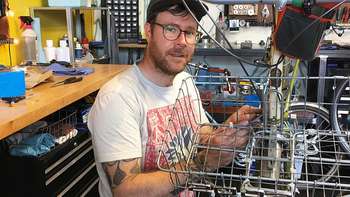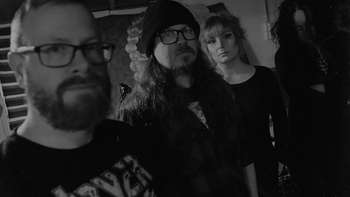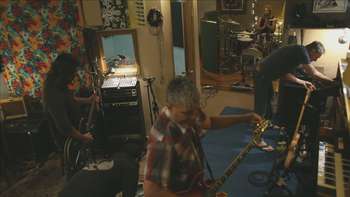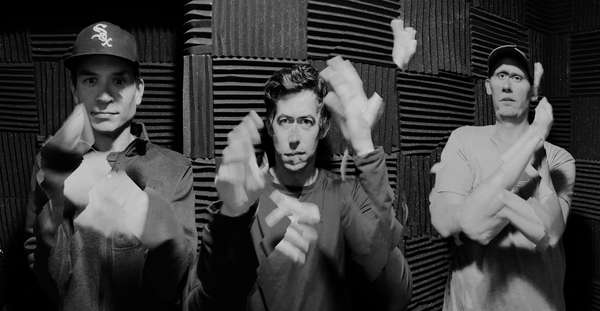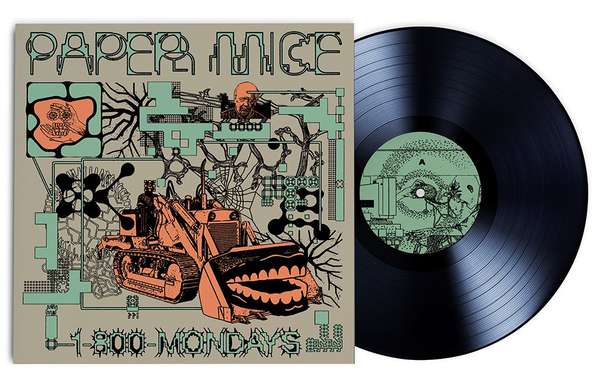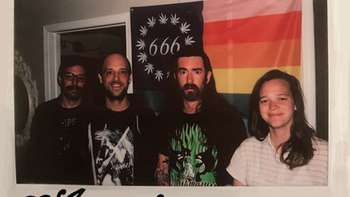There are a lot of misconceptions about the life of a musician. The old rock star image of bright lights and fast living is almost patently false. Most musicians have day jobs – and not just to pay the bills. Jobs provide new challenges, personal fulfillment and, yes, some rent or gas money. And usually when somebody is writing a new record or scheduling a tour, they have to balance that with their job.
How an artist spends their time by day will influence the creative process at night. In Don’t Quit Your Day Job, Scene Point Blank looks at how musicians split their time, and how their careers influence their music or – sometimes – how their music provides escape.
In this edition, we emailed with Dave Reminick of Paper Mice, discussing his job teaching music theory, composing and how it all connects together.
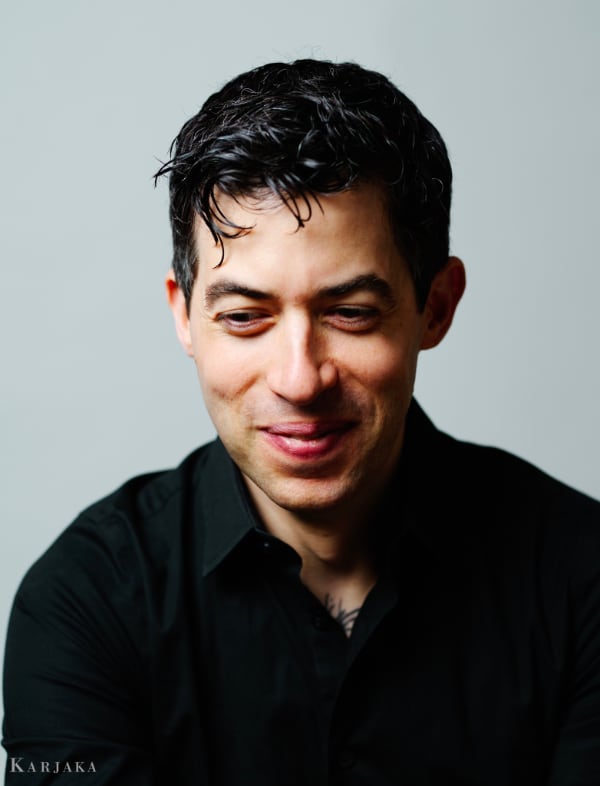
Scene Point Blank: First, can you share a bit about your job title(s) and background? You teach music theory and also compose chamber music on commission. How many instruments do you play?
Dave Reminick: I typically split my time between teaching and composing, although this summer I’m looking forward to focusing only on composing. While I’ve been composing since I was in high school, it was only in the past ten or so years that I’ve tried to make a career of it. The majority of my studies were in other topics; I hold Bachelor’s degrees in Psychology and Saxophone, Masters degrees in Saxophone and Music Theory, and a Doctorate in Composition. I’ve taught college-level composition, music theory, and saxophone for around 15 years, and currently teach music theory at DePaul University and saxophone at Northeastern Illinois University. I also teach private composition, theory, and guitar lessons.
I play a bunch of instruments, including saxophone, guitar, piano, mandolin, and banjo. In fact, when we started the band, I was originally going to play saxophone!
Scene Point Blank: While these are separate jobs, there is certainly overlap. Do you view them as complementary or connected? Is working multiple jobs like this a necessity of "the music life"?
Dave Reminick: For most university music teachers, it is essential to have an active musical life. From a practical point of view, teachers who don’t produce (e.g. perform, compose, publish) don’t get granted tenure, so the connection is kinda built into the system. More importantly, it’s hard to be an effective teacher if you can’t draw from real-life musical experiences.
Scene Point Blank: When did you first become serious about being a musician and how did you connect the dots from that point to your current career path?
Dave Reminick: I played music all through my childhood, but it became an obsession in high school the first time I heard Cecil Taylor on the radio. All of a sudden, the world of music seemed intimidatingly huge and unfathomably magical. I wanted to learn everything. I started improvising, composing, taking private piano/music theory lessons, and applying to undergrad music programs. I began teaching Music Theory after finishing my masters degrees, and spent about a decade performing as a saxophonist in the contemporary music ensemble ICE (International Contemporary Ensemble). Composing gradually took on a greater importance in my life, and eventually I stopped playing saxophone professionally and applied to doctoral composition programs. I’ve been composing professionally ever since.
Scene Point Blank: How much of this time were you playing in rock bands?
Dave Reminick: I played in bands nonstop from the 10th grade until today. I started with a rock band and a klezmer group in high school, then continued playing in punk, noise, and free jazz groups all through college. When I was in my masters program I started a band called The Teeth (not the Philly band; we were from Ann Arbor, MI). That was the first time I sang in a band, and it was also the first time I felt I was making music that was truly my own. Adam McCormack (the original bassist from Paper Mice) actually played bass in The Teeth, and when we both moved to Chicago we started Paper Mice together.
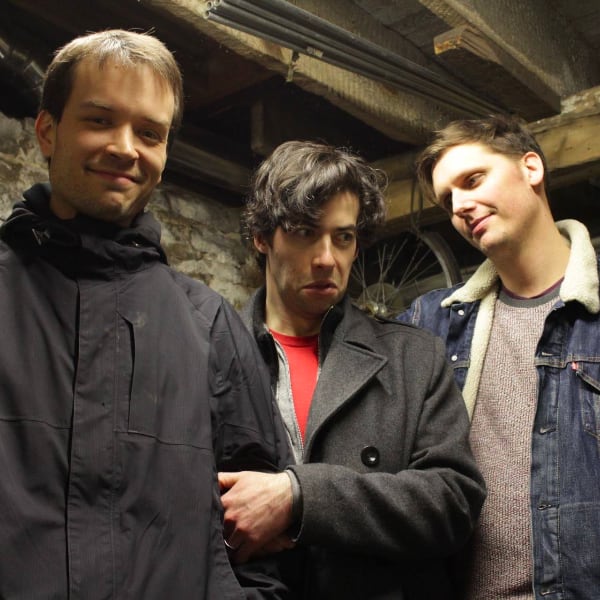
Scene Point Blank: How did the pandemic influence your work over the past year? Is it improving?
Dave Reminick: While the pandemic put a damper on Paper Mice, it had a surprisingly positive effect on my composing. Composing became a refuge during the early days of the pandemic; an activity where I could be alone and lose myself in the creative process. That refuge disappeared when the school year began and my son started kindergarten online. From then on, my composing time was shared with trying to keep him focused on his classwork.
Scene Point Blank: Your music crosses many different styles. In pursuing a music-related career have you encountered situations where certain musical styles were viewed as a roadblock or challenge to more "serious/paid work”?
Dave Reminick: You know, it’s weird. I have definitely seen that kind of thing come up, and always feared it would be an issue for me, but people are more and more welcoming of different stylistic inclinations. In fact my colleagues and professors have been nothing but curious, supportive, and encouraging.
Scene Point Blank: Is it challenging to separate creative work from "career work"? Are they even separate things or do they constantly bleed into one another?
Dave Reminick: I am very lucky that my career as a composer allows me to write exactly the music I want to write; as such my “career work” is my creative work.
Scene Point Blank: Do you ever find ideas from composing chamber music influencing Paper Mice and vice versa?
Dave Reminick: Absolutely! In fact, I had spent years writing chamber music that never felt quite right to me; it wasn’t until I stopped to actually write out a list of my musical interests and priorities that I realized that my chamber music wasn’t dealing with any of them; all the while, Paper Mice ticked every single box! It was then that I decided I would stop worrying about what my teachers and colleagues thought of my music and start writing what I wanted to write. (side note: My teachers and colleagues were always supportive of my work. I was just anxious that they wouldn’t be.)
I should also mention that the new Paper Mice album has a lot of “chamber music stuff” on it, including three-part vocal harmony, string quartet (the Spektral Quartet plays on “Trial by Fire” and “The Cynic Route”), and tuba and contrabassoon (Mike Hogg and Ben Roidl-Ward play on “It’s Your Funeral”).
I decided I would stop worrying about what my teachers and colleagues thought of my music and start writing what I wanted to write.
Scene Point Blank: I've focused on composing so far, but you also teach. How does that impact your creative, personal life/work?
Dave Reminick: I know it sounds like a platitude, but in all honesty, I learn so much from my students. They are constantly introducing me to new music, questioning notions that were all-but-settled in my mind, and raising perspectives I’d never considered. It’s humbling, truly.
Scene Point Blank: How does this influence how Paper Mice operates -- meaning, do you have to tour at a certain time of year to fit with your "day job schedule" or does it affect how you write, rehearse or record?
Dave Reminick: Yes, yes, and yes -- all of the above!
Touring -- which we haven’t done in a number of years due to work and kids -- is only ever possible for us in the summer, when the school year is over. The actual classroom part of teaching is pretty minimally invasive, especially considering the rest of the band has day jobs as well. Grading and class prep really do eat up my creative time though.
Scene Point Blank: Has your work in the independent music scene influenced your career path in any surprising ways, like being something you cited in a job interview or introducing you to new people?
Dave Reminick: I like to think so. Several of my jobs have been in music departments with students who are very interested in popular/independent music. I’ve discussed the band and the Chicago scene in many classes, not to mention in job interviews. Also, I always include my work with Paper Mice on my resume and CV, and list our songs/albums on my works list.
Scene Point Blank: Have you worked any professional, non-music jobs that ultimately pushed you to where you are today?
Dave Reminick: I worked a number of jobs, but the music jobs are the only ones that were of any importance.
Scene Point Blank: What advice would you give to others who might be interested in pursuing music education or commission work but don't know where to start?
Dave Reminick: With regard to teaching, most university music positions typically requires at least a Masters level degree, so unless you’re already super famous, going to a metric butt-ton of school is kind of the only place to start.
With regard to composing, I’d say start small. Write a bunch of solo pieces and duos and get as many performances as you can. The more your name gets out there, the bigger pieces you’ll be able to take on. Also, don’t wait for opportunities to come to you; talk to people/ensembles that you admire about collaborating. You never know how they’ll respond!
Most professional (and a lot of student) performers/ensembles are super busy all the time and don’t have as much time as they’d like to actively seek out works by emerging composers; but many will be willing/eager to take on new and unexpected projects that seem exciting to them.
